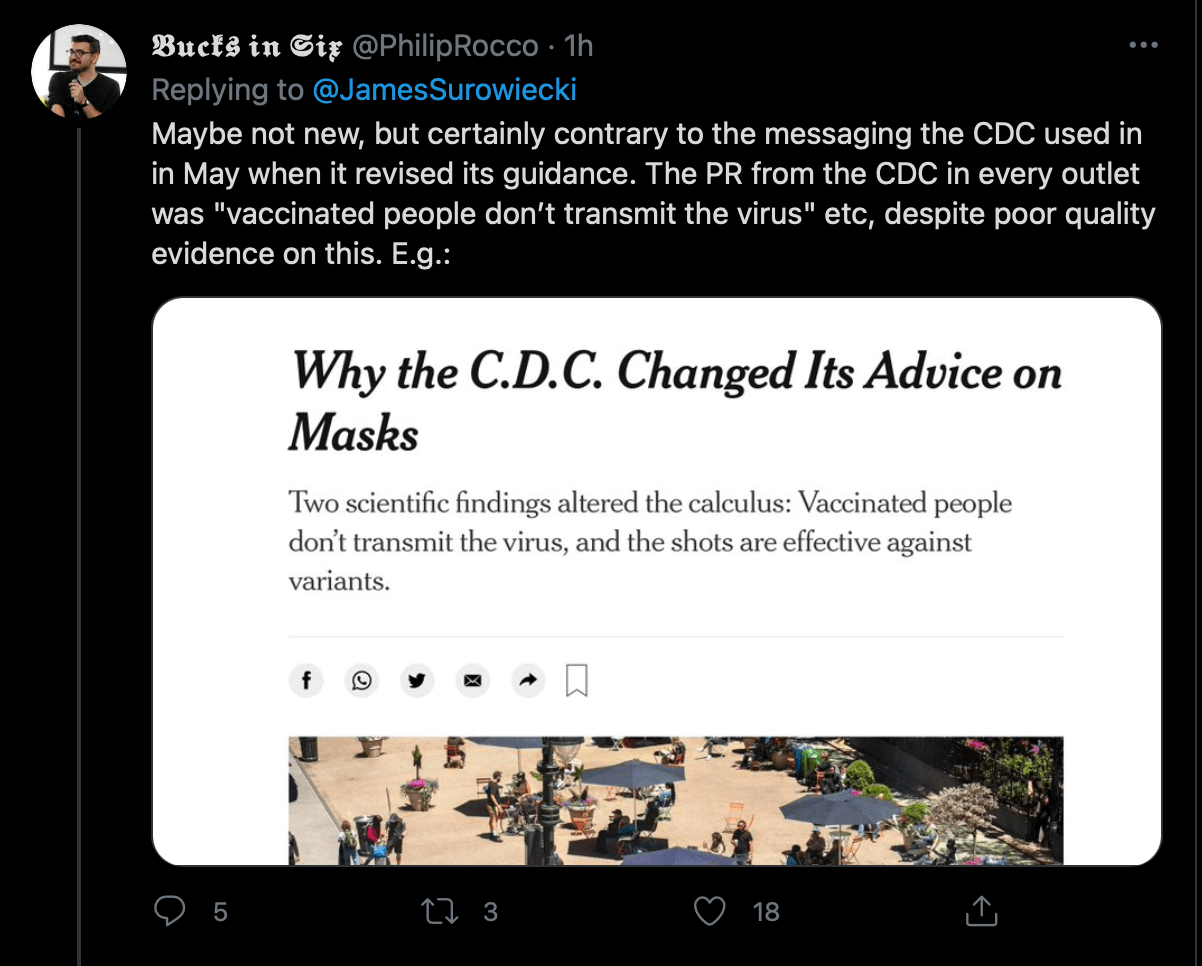What Science Story Have They Heard?
The CDC has finally done it: After many valiant near-bullseyes, they’ve finally managed to confuse and/or alienate just about everyone in the United States.
The last dart was the agency's clumsy and data-free communication of the renewed need for indoor masking in areas with high COVID case incidence, given the Delta variant’s increased transmissibility and lethality over the original COVID-19 virus. While it’s always a challenge to communicate well, it takes special genius to communicate so consistently poorly that you confuse and disgust close to 100% of your audiences — not only those people predisposed to dismiss your messages, but also those primed to accept them without question.
On Twitter, experts and journalists are split. Some are squinting at slides leaked to the Washington Post from an internal CDC presentation not meant for the public, trying to tell if they really support universal masking. Others are saying nothing has really changed and this just shows we need everyone to get vaccinated. The latter group has seen it all before. Their message: The CDC messaging shift is just another instance of science responding to science — adjust accordingly. (No need to freak out when the presentation uses phrases such as “the war has changed.”) Because...you are science-based, right?
Sure. But non-scientists are lots of other things as well.
It’s now obvious that many vaccinated people heard and anchored to an alternative science-based narrative from the CDC — one encapsulated by the tweet below (the New York Times story it references was published on May 14th of this year):
If I’m vaccinated, I won’t transmit the virus; if I’m vaccinated, I’m protected against the variants. Translation: I have my life back. Thank you, science!
What a powerful, seductive narrative — science-based and liberating. Which explains the bitterness, disbelief and resistance on, for example, the Washington DC subReddit (not normally a hotbed of vaccine hesitancy) over the DC government reinstating its indoor mask mandate for businesses in the district.
But note: It’s not the narrative of science — the narrative of endlessly provisional models and conclusions, what Gemma Derrick called during our Science+Story podcast conversation the “yes/and” narrative of science.
It's instead exactly the narrative of "I'm a science-based person who thinks about doing science-based things because those things are the most likely of all options to produce the outcome I desire. And I'm not now going to wear a mask because I did what science told me to and I should be safe."
Takeaway: As a researcher, you might think you’re promoting "the narrative of science." But when you transition to public expert — and the CDC functions as a giant locus of public expertise — your audiences are not researchers. They’re liable to hear a different "science-based" narrative — one, as Gemma put it, based more on the “yes/no,” definitive answer they crave. Civilians have little taste for endless inquiry and process. They just want to get on with their lives.
You need to know when you’re not just talking about science as a process when people hear science as a wager people make to produce the best possible outcome for themselves. The CDC (for one) keeps forgetting that distinction, at the expense of its credibility. As a public expert, you can’t afford that mistake.




